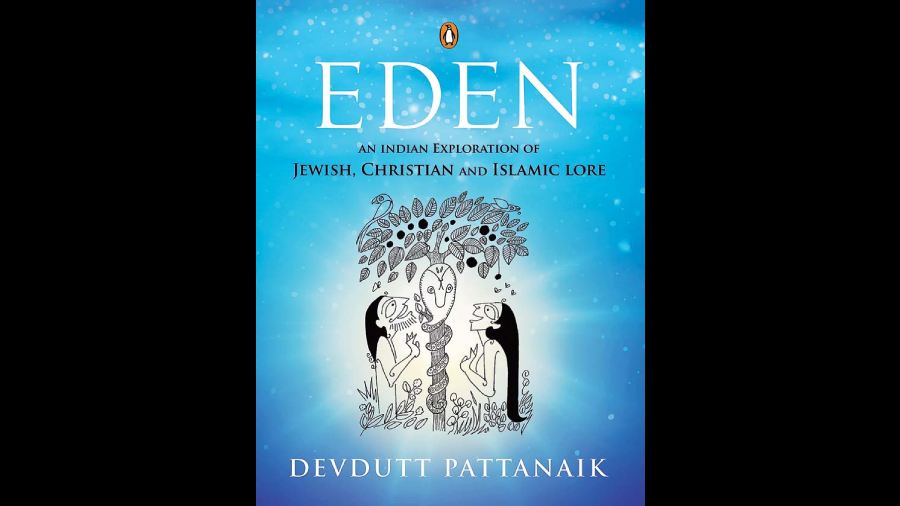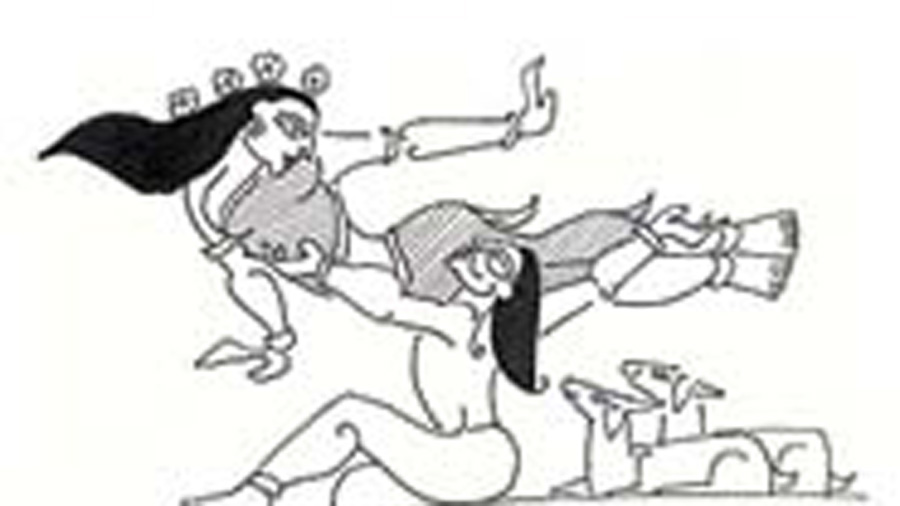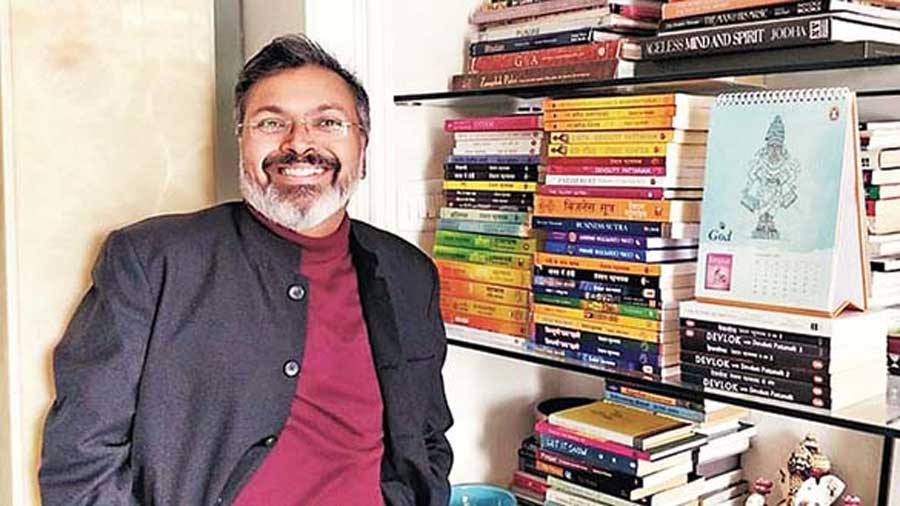There is a certain comfort in Devdutt Pattanaik’s style of storytelling where the frugality of words only accentuates the story. Crisp and conciseness of the text allow for the story to be the hero. And when he adds to that his inimitable style of illustrations, there are emotions ready to be stirred in every reader. This time, he has chosen to write and illustrate montheistic religous lore, viewed through an Indian lens. In his book Eden: An Indian Exploration of Jewish, Christian and Islamic Lore (Penguin India; Rs 599) Pattnaik’s immensely deep reading of the Puranas, Vedas, Upanishads and religious texts of all kinds shines through these small stories that are tied together with their appearances in various religious lore.

Seamlessly connecting religions through these stories, he informs and delights at the end of each. In his retelling of monotheism, he has carefully divided each group of stories in their various chronology into 12 separate parts that go along the lines of ‘Out of Eden’, ‘Disobedience and Retribution’, ‘Out of Mesopotamia’, ‘Refuge in Egypt’ and more.
The stories are oftentimes familiar and almost always intriguing. He writes of Lilith, the first woman God created for Adam who refused to coexist with him unless she was treated as an equal. She soon left for Eden to take refuge in a desert only to later find out he had taken another partner called Eve. It was then Lilith swore to destroy his children and is now said to cause all miscarriages, stillbirth and fatal childhood fevers. Lilith’s presence in Jewish folklore has been studied by feminist anthropologists who explore the relationship between the patriarchal fall of certain powerful goddesses.
He writes of Khidr, ‘the evergreen prophet’ who Moses encounters in the Quran. A man of Moses’s knowledge is humbled in front of this man who remains unnamed in the Quran but is later identified as Khidr who is associated with water, the colour green, fish and immortality. Pattanaik writes of the popularity of this story in Persian lands. Each story is a fable that imparts a lesson. In this gorgeous retelling, the author is just the messenger who shies away from colouring the stories with his own imagination and just believes in sharing his knowledge. That is perhaps what creates a wonderful bond between the reader and Pattanaik.

Devdutta Pattanik’s inimitable illustration style
He traces the tale of the Song of Solomon –– the man who wrote the ultimate song filled with love and agony of loss between a man and a woman. The two lovers keep meeting and separating until they finally unite in a grand wedding witnessed by all, teaching one the lesson that ‘everyone is invited to find their lover but only when they are ready’. He finds the story in Tanakh or the Jewish Bible and the belief of Muslims that Muhammad is mentioned in the Song of Solomon. Pattanaik’s book helps highlight the idea of religion being Abrahamic by belonging to a similar source of monotheism. That their narratives are the same –– that the world needs saving and that we shall be sent a saviour –– only their interpretations vary in places. However, it helps ask questions like ‘What is the world being saved from’ in the contemporary setting.
A lot has been said about Pattanaik’s gorgeous illustrations that accompany his texts. The line-art used to depict these stories have an inherent Indianness to its style that is now signature to the author. That a man could so effortlessly explore monotheism through this simple form of storytelling is proven in Eden: An Indian Exploration of Jewish, Christian and Islamic Lore. We can imagine this book kept on the bedside table being read in little portions every single day.
